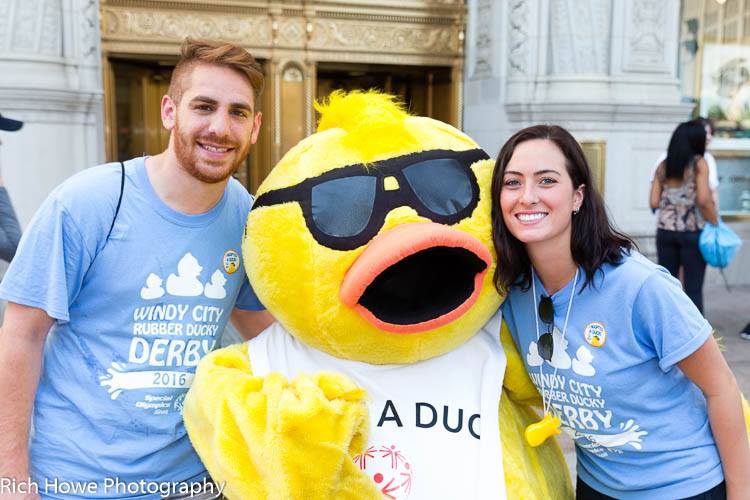Nonprofit organizations need volunteers more than ever and people want to volunteer. The value of a volunteer per hour is worth $23.56 according to the Independent Sector. We would like to think that all volunteers serve nonprofits out of the goodness of their hearts which is certainly a factor; however, your volunteers have choices about where, when and how they volunteer. Do you know what today’s volunteers want? How can you organize volunteers in a way that maximizes their impact with your organization and makes them want to continue volunteering for your nonprofit and your Derby Duck Race? Here are 10 tips to keep your volunteers motivated and happy!
Be Prepared for Them
Don’t bring a volunteer in until you have everything organized. Make the volunteer’s job description clear from the beginning and if they are volunteering at your office, create a designated area to work. Always state the outcome of the task volunteers are doing which will help your volunteers stay on track.
Offer a Warm Welcome
Show them around and introduce them to your staff and other volunteers. Have the director of your nonprofit stop by and say hello. Show that your organization is warm and friendly. Think about your nonprofit’s culture and work environment and if your nonprofit would be a place you would recommend to friends or family as a good place to work or volunteer.
Provide Training
Although the job may seem easy, take time to explain it. Another volunteer who is experienced can help new volunteers. In addition, be sure that instructions are clearly posted for volunteers and have a sheet they can reference.
Maximize the Skills of your Volunteers
Think of your volunteers as extra staff who are capable of performing complex tasks. Take advantage of their experience and unique skills. You may have volunteers who have marketing, graphic design or writing skills who could assist your organization on all levels, including promoting your Duck Race. Provide leadership opportunities to those volunteers who are willing and have the time to take on more responsibility.
Respect their Time
Everyone has busy lives and is juggling professional and personal day-to-day tasks. Decide up front how much time the job will need and include that information when you publicize your volunteer position. Provide a variety of different options so that your organization can appeal to millennial professionals, a busy soccer mom or the retiree who may have more time.
Appreciate Them
Saying thank you is probably the simplest and easiest thing an organization can do. Creative gestures for saying thanks include: sending a letter of thanks and recognition to the volunteer’s employer or asking those served by your nonprofit to craft a personal gift to give to treasured volunteers. In addition, you can send a thank your card to their home, including a volunteer spotlight in a newsletter, or plan a volunteer appreciation lunch.
Communicate with Them Regularly
Regular communication is motivating for volunteers while the lack of it is one of the main reasons volunteers become dissatisfied. If your organization does not have a volunteer coordinator, assign someone to be the point of contact for your volunteers. Including the volunteer coordinator on your fundraising team is a great idea since volunteers typically are your best donors. Also, respond quickly to any volunteer concerns.
Let Them Know They are Helping to Make the World a Better Place
Let your volunteers know their impact by sharing success stories about your programs. For example, share with them about the new building your nonprofit was able to add to your organization from proceeds from your Derby Duck Race. Update them on how your organization is progressing towards its goals. Give them tours and invite them to presentations your nonprofit is having.
Build a Volunteer Community
Host a barbeque or a volunteer lunch before starting a new project so volunteers can get to know each other. Volunteering is a great way for many people to socialize and make new friends, so if you think a couple of volunteers would get along well, assign them to do a particular job together. Furthermore, remember that younger volunteers enjoy volunteering as a group, especially with people from their work.
Help Them Learn Something New
Finally, volunteers want to learn new skills and are likely to have a healthy curiosity to try new things. Volunteering also allows people to try out a new career without making a long term commitment. Turning a volunteer job into a mini educational experience will be highly valued by volunteers and may result in some great referrals as your volunteers tell others about their experience. Your volunteers may even become loyal donors in the process.
A volunteer’s value is impossible to fully calculate. With these helpful tips, your nonprofit will be in the best position to recruit and retain volunteers to retain this priceless resource. What types of tips do you have to keep your volunteers motivated?





